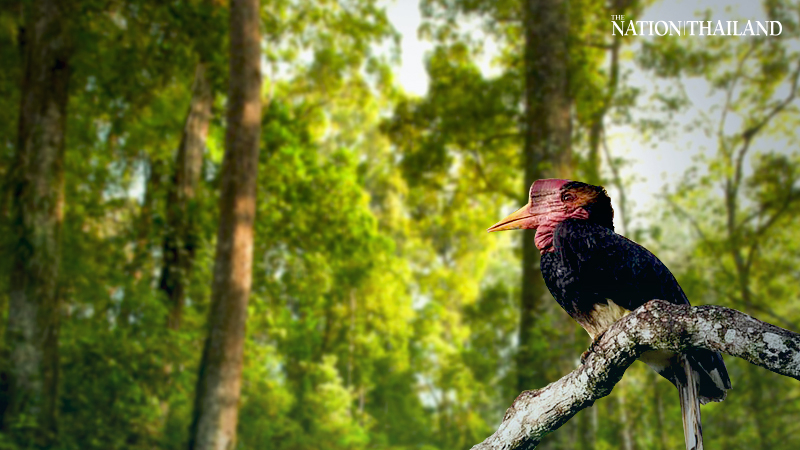
The helmeted hornbill was added to the list of Thailand’s reserved wildlife on Monday at a committee on national wildlife conservation and protection meeting led by Natural Resources and Environment Minister Varawut Silpa-archa.
Sasin Chalermlarp, president of the Seub Nakhasathien Foundation and committee member, said the birds will be officially added to the reserved list once the legal process is complete within a year.
He added that the foundation, together with the Thailand Hornbill Research Foundation, will continue monitoring the situation. These birds hunted because their unique ivory casque commands a high price.
As per the 2019 Wildlife Conservation and Protection Act, people caught hunting or selling protected wildlife will face at least 10 years in prison and/or a fine of Bt1 million. People who hunt or sell reserved wildlife will face up to 15 years in prison and/or a fine of up to Bt1.5 million.
The helmeted hornbill is considered a prehistoric animal and ancestor of other hornbills in Asia. It can be found in Myanmar, Malaysia, Indonesia and Thailand.
A 2019 survey revealed that some 20 helmeted hornbills were spotted in three reservation areas in Thailand, namely the
Budo Sungai Padi National Park, Hala-Bala Wildlife Sanctuary and Khlong Saeng Wildlife Sanctuary. There are fewer than 100 helmeted hornbills nationwide.
Owing to constant hunting and habitat loss, the helmeted hornbill moved up in the list from threatened to critically endangered in the IUCN Red List of Threatened Species in 2015. It is listed in Appendix I of CITES.
Conservation group TRAFFIC reported that 2,170 casques were confiscated in just three years in China and Indonesia alone. Meanwhile, at least 546 hornbill parts, mostly casques of helmeted hornbills, have been posted for sale on Thai Facebook pages over the past five years. Traders apparently pay villagers between Bt5,000 and Bt6,000 for a hornbill head, which are then sold at double or triple the amount in cities and other countries.


